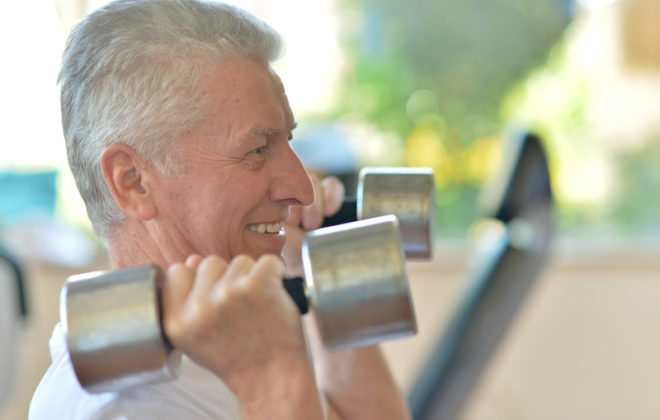What is health? Life without colds
For many, a stuffy nose, sore throat and listlessness are familiar sensations at this time of year when the cold and flu season is at its worst. Having a cold is treated as a normal part of life. We tend to say that it is ‘just a cold’. But is having a cold a normal part of life? Is it something that you’ll catch every autumn no matter what and that nothing can be done about?
Immunity
An individual catches a cold when the body’s immunity breaks down and a pathogen enters the body. Immunity is the body’s ability to resist these pathogens. How can you keep your resistance high enough for your body to be able to avoid catching a cold? Cold prevention > good recovery and a balance help you to stay healthy A body that is in a state of equilibrium can resist cold viruses. A balance between sleeping, recovery, activity and stress promotes good health. Good sleep and high-quality recovery support resistance and normal hormone function, and revive the body after stress. This in turn helps the body to have the power to fight pathogens, giving the individual the strength to live well and feel energetic. Fatigue leads to passivity and poor choices.
Health-enhancing physical activity – a daily dose of health
Duodecim’s Health Library (Terveyskirjasto) recommends taking a minimum of 10,000 and preferably 15,000 steps daily (equally the UKK Institute’s Physical activity pie chart recommends a minimum of 30 minutes of activity daily, and preferably one hour), which would allow everyone to get their own daily dose of health from physical, low-intensity activity, also known as health-enhancing physical activity. The positive physiological effects of health-enhancing physical activity include the creation of new capillaries, an enhanced metabolism, lower blood pressure, better blood and fat values, improved recovery, stronger lymphatic circulation, improved fat levels, better carbohydrate and basal metabolisms, stronger muscles and bones, the stretching of muscles and fascias, better stress tolerance and physical and mental recovery, increased brain activity, and increased energy and intestinal peristalsis (i.e. the movement that makes a chyme (a ball of food) travel through the digestive system).

Basic fitness is the basis of immunity
In addition to health-enhancing physical activity, we need basic endurance training of light to medium intensity. This type of training requires longer training sessions, in activities such as walking, swimming, skiing, cycling or jogging.
Basic fitness is of great importance to the body’s immunity, because basic fitness creates the basis for the whole body’s resistance. When there is a good level of basic fitness, the body is accustomed to stress and recovery; in other words, the body tolerates the natural stress reaction and is able to recover from it. Basic fitness creates the foundation for a good metabolism, respiratory and cardiovascular health, muscle fitness, stress tolerance, good fat and basal metabolisms, the ability to use different nutrients as energy sources and the proper functioning of energy-related metabolic processes.
The intestines and health
From an intestinal point of view, exercise is important because it causes the chyme to move. In addition, the fasting period during sleep and the approximately three hour breaks in food intake between meals are important rest periods for the intestine. The intestinal tract needs to rest to counterbalance digestion. The intestine is at the centre of good health and is home to many good bacteria. These bacteria require high-quality food every day, because they ensure the whole body’s well-being, mood and health, and encourage people to take positive actions for their health (because when good bacteria are well fed they help an individual to undertake healthy activities and make good choices). Thus, a healthy diet modifies the intestinal bacterial strain, leading to it supporting other lifestyle changes. Healthy intestines support the health of all the tissues and the entire body. When the intestine is healthy and does not cause low-grade or other inflammation in the body, the body’s immunity (white blood cell function) works well.
A balanced and healthy diet nurtures the intestines and strengthens immunity
Cold prevention is also supported by balanced nutrition, which should contain enough good-quality carbohydrates (whole grains, vegetables, berries, salads, potatoes, etc.) to provide the nutrients, such as vitamins, micronutrients and energy, needed for all body functions. A diet rich in different sources of protein is also important in supporting the body’s own immunity and in providing building materials for the body. Good fats are needed to promote the well-being and moisture of the mucous membranes (pathogens enter the body through the mucous membranes), and to support the absorption of vitamins and intestinal well-being. Regular water intake is important in keeping the chyme moving through the intestinal tract, as well as supporting the metabolism and the well-being of cells and mucous membranes.
Social relationships are good for mental health
The human being is a psychophysical and social entity, thus our need for society, acceptance, love and intimacy should not be forgotten when talking about health.
Smart habits keep bugs away
In addition to the healthy lifestyle discussed above, there are other small ways to keep colds at bay. Before eating and going into the home or office, it is good practice to wash your hands thoroughly, so that you do not carry bacteria into your environment. It is equally important to dry your hands carefully so that your wet hands do not spread bacteria via handles and other environmental items. Bacteria and bugs enter the body through the mucous membranes – thus you should avoid all unnecessary touching of your face and eyes. Other helpful actions to keep cold viruses away include changing pillowcases and hand towels regularly so that bugs cannot grow on them, and favouring organic detergents, which won’t kill the good bacteria present in the home that strengthen resistance. It is advisable to visit a wide range of environments, such as the countryside, farms and various public places, as well as petting animals, in order to develop your body’s immunity.
Feeling under the weather? Tips for avoiding a cold
If you’re not feeling fully fit, react immediately: be kind to yourself and reduce stress levels in all areas of your life; ensure a good recovery period between exercise, eat well and regularly, and undertake light health-enhancing physical activity, as well as taking vitamin C. It is safe to increase your intake of vitamin C as it is a water-soluble vitamin that strengthens immunity and works well when needed as a preventative medication. However, using a pharmaceutical preparation of vitamin C every day is not recommended – you should get your normal dose from your daily diet.




